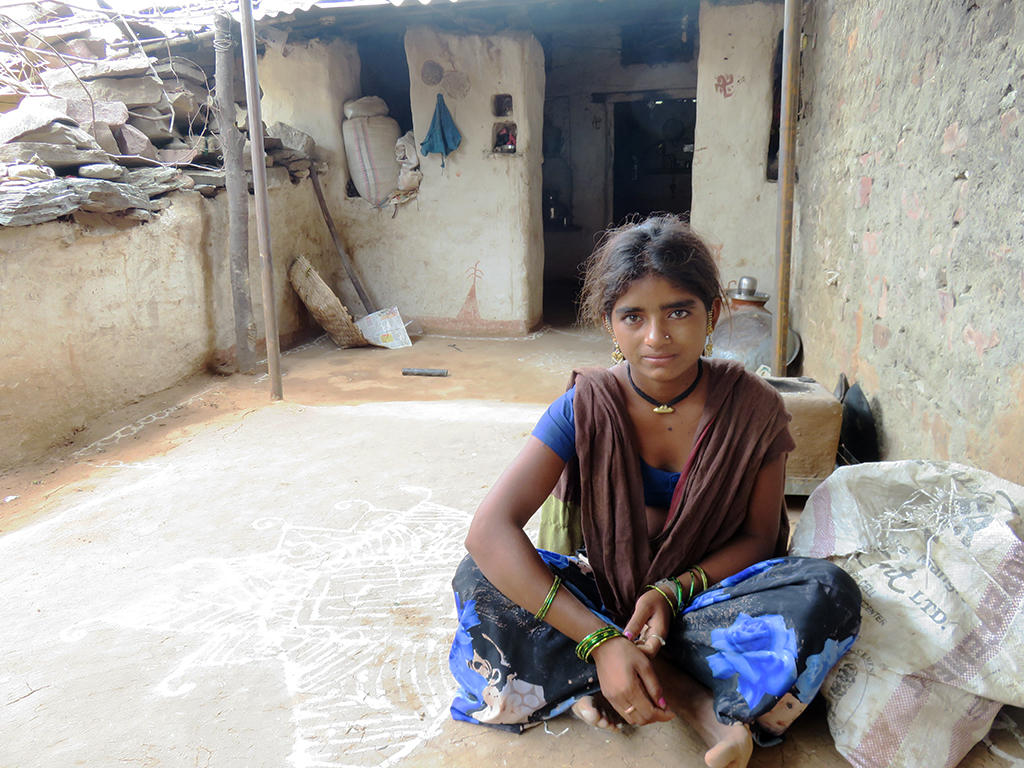Switzerland: a hub for innovative social financing

Money to help lift the most-disadvantaged out of misery is drying up, while at the same time private investors are looking for new opportunities in a zero-interest environment. Switzerland is well poised to assume a leadership role in linking the two.
It is nearing 9am in Zurich and a conference hall located 100 metres from the square, Paradeplatz, the very heart of the city’s financial district, is packed. Over a hundred representatives from development agencies, academia, as well as a smattering of private investors are present. They are waiting for two heavyweights – Sergio Ermotti, CEO of Switzerland’s biggest bank UBS and Marie-Gabrielle Ineichen-Fleisch, director of the State Secretariat for Economic Affairs (SECO) – to open the first-ever conference on Social and Development Impact Bonds (SIBs and DIBs).
Impact Bonds are a financial instrument where an investor provides money upfront to a service provider (usually an NGO or government agency) to achieve a measurable outcome like preventing prisoners from reoffending or ensuring people find employment. An outcome payer (usually a government or foundation) then pays back the investor an amount that corresponds to the achievement of outcomes. Thus, the investor makes a profit if the outcomes are achieved or surpassed but stands to lose money if they weren’t.
If the outcome payer is the government it is called a Social Impact Bond and if not it is a Development Impact Bond. Interest rates investors can expect are typically between seven to 15% to strike a balance between the risks involved and the non-commercial motivations behind the project.
“What’s already clear, is that in the current economic climate, traditional funding streams are under severe pressure,” said UBS CEO Ermotti in his speech, referring to the shortfall in development aid needed to meet global challenges like poverty, hunger and lack of healthcare.
The United Nations estimates that at least an extra $2.5 trillion a year will be needed until 2030 to achieve the Sustainable Development GoalsExternal link (SDGs). Some are hoping private finance will plug the gap.
“As interest rates in the Western world remain at historic lows, investors are eagerly looking for new investment classes,” said Ineichen-Fleisch, whose day job involves negotiating trade agreements for Switzerland. “There is an evolving generation of wealthy individuals who give as much weight to social and environmental benefit as to financial profit.”
The added value that impact bonds bring to development funding is shifting the focus from activities and inputs to outcomes. Investors are only paid for outcomes that have been achieved.
“The orientation towards an impact based model allows service providers a lot of flexibility to be innovative. They are also shouldering risk as if they do not achieve the outcomes the reimbursement is substantially lower,” said Raymond Furer, ambassador and delegate for the Swiss government for trade agreements.
Swiss leadership
According to Toby Eccles – a keynote speaker at the conference who is regarded by some as the father of SIBs – there are 107 impact bonds globally, that have together raised $378 million and impacted 700,000 lives. However, the vast majority of the them have been implemented in the UK and US.
But Switzerland is a pioneer when it comes to getting such projects off the ground under more challenging conditions in developing countries, where help is most needed. The Alpine nation is behind the world’s first SIB and DIB in middle-income countries. SECO is the outcome payer for a SIB in Colombia that aims to help over 500 vulnerable Colombians find and retain jobs. It could pay out investors up to almost CHF4 million if the project outcome is successful.
The UBS Optimus Foundation, a philanthropic arm of the UBS bank, invested in the world’s first DIBs in education ($277,000) and healthcare ($3.5 million) in India that aim to keep girls in schools and help reduce infant mortality in private hospitals respectively. Another pioneer is the Swiss-led International Committee of the Red Cross (ICRC) which launched the world’s first Humanitarian Impact BondExternal link (HIB). Its goal is to create physical rehabilitation centres in conflict-torn African countries. It raised CHF26 million from private investors, of which up to CHF10 million will be paid out by the Foreign Affairs department responsible for development aidExternal link, depending on the outcomes achieved.
Not all Swiss impact bond projects are overseas. The canton of Bern had launched an SIBExternal link to integrate refugees into the labour market. Perhaps Switzerland’s experience of using payment for success type of contracts (Leistungsvereinbarungen in German) in the public sector can be credited for this willingness to launch such projects. This kind of outcome-based approach within government circles in combination with a strong finance and fintech sector, as well as hosting international organisations specialised in development and humanitarian work could help Switzerland become a hub for impact bonds.
“Switzerland has one of the most robust financial structures in the world and it makes sense we bring together the innovative thinking of the Swiss government and the Swiss banking sector to bring in more and better money,” said Phyllis Costanza, CEO UBS Optimus.
Impact bonds are not suitable for all kinds of projects. Participants at the conference, held on January 18, shared some of the drawbacks and challenges:
“They can be used to address a complex problem with a clear outcome, where there is a need for innovation, external capital, and new collaborations and partnerships. They are not suitable when an outcome is certain from paying for an input or when it is difficult to attribute the outcome to an intervention versus external factors”. Toby Eccles, Social Finance UK.
“The time and effort we had to spend in order to make the SIB successful ate into our profits. The service providers were not as good as they thought and need more capacity building”. Fernando Cortés, Fundacion Bolivar Davivienda.
“Even though they are promoted as a means to reduce government risk they can actually increase the risk if governments end up paying out too much”. Toby Eccles, Social Finance UK.
“We were operating in a data scarce employment. Nobody knows how much it really costs to put somebody in employment,” Avnish Gungadurdoss, Instiglio.
“I think the biggest limitation is getting governments to finance multi-year budgets. One year is not enough to achieve outcomes”. Christine Ternent, Multilateral Invest Fund.
“In the UK no SIB was continued after the end of the contract”. Toby Eccles, Social Finance UK.
“Almost always, these programmes understimate the period of time needed to build capacity for performance management. Technology is essential for feedback and to make corrections”. Julie Katzman, Executive vice president Inter-American Development Bank.

More
Are India’s daughters a good return on investment?

In compliance with the JTI standards
More: SWI swissinfo.ch certified by the Journalism Trust Initiative












You can find an overview of ongoing debates with our journalists here . Please join us!
If you want to start a conversation about a topic raised in this article or want to report factual errors, email us at english@swissinfo.ch.